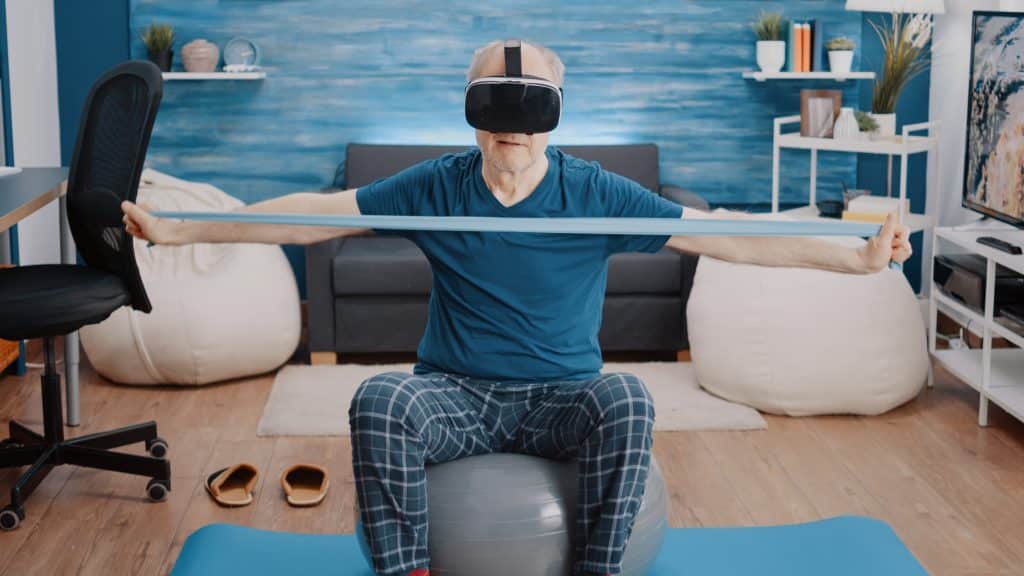How Physical Exercise Aids Cognitive Function
Ella Knight August 6, 2025
When we think of physical exercise, the first benefits that come to mind are often related to physical health—stronger muscles, improved cardiovascular health, and weight management. However, an emerging body of research has uncovered another crucial benefit of exercise: it significantly boosts cognitive function.
Over the last decade, studies have consistently shown that regular physical activity plays a vital role in enhancing brain function, memory, focus, and overall mental performance. In fact, more and more professionals and individuals are turning to exercise not just to stay fit but to sharpen their minds and improve cognitive abilities. This article will explore the latest research on how physical exercise aids cognitive function, why this link is becoming increasingly recognized, and how you can integrate exercise into your routine for optimal brain health.

The Science Behind Exercise and Cognitive Function
Understanding the connection between physical exercise and brain function begins with understanding how exercise impacts the brain. The brain, like the body, requires oxygen, nutrients, and stimulation to stay healthy and perform at its best. Physical activity has been shown to trigger several processes that promote brain health and cognitive enhancement.
1. Increased Blood Flow to the Brain
One of the primary ways that exercise enhances cognitive function is by increasing blood flow to the brain. When we engage in physical activity, our heart rate increases, pumping more oxygen-rich blood to the brain. This influx of oxygen and nutrients stimulates the growth of new blood vessels and improves brain function.
According to a study published in The Journal of Physiology, exercise increases cerebral blood flow, particularly in areas of the brain involved in memory, decision-making, and problem-solving. This improved circulation helps keep the brain sharp, promotes mental clarity, and supports cognitive performance over time.
2. Neurogenesis: The Creation of New Brain Cells
Neurogenesis, the process of generating new brain cells, is another way exercise positively impacts cognitive function. Research conducted by The National Institute on Aging found that regular aerobic exercise, such as running or cycling, encourages the growth of new neurons in the hippocampus—the region of the brain responsible for memory and learning. This process is particularly important as we age because it can help counteract the decline in brain cells and cognitive abilities that often accompanies aging.
Increased neurogenesis through exercise can lead to improved memory, faster learning, and better overall cognitive function, especially in older adults.
3. Boosted Levels of Brain-Derived Neurotrophic Factor (BDNF)
Brain-Derived Neurotrophic Factor (BDNF) is a protein that plays a critical role in maintaining the health of neurons and promoting neurogenesis. BDNF is often referred to as “fertilizer for the brain” because it supports the growth, maintenance, and survival of brain cells. Physical exercise has been shown to increase the production of BDNF in the brain, particularly in the hippocampus.
A study published in The Journal of Neuroscience found that exercise, especially endurance training, can significantly elevate BDNF levels. Higher BDNF levels have been linked to better memory, learning, and cognitive function, as well as a reduced risk of neurodegenerative diseases like Alzheimer’s.
How Exercise Improves Specific Cognitive Functions
While exercise promotes overall brain health, it also has specific effects on various aspects of cognitive function. Let’s explore how exercise enhances memory, focus, creativity, and problem-solving.
1. Improved Memory and Learning
Regular physical activity is especially beneficial for memory. As mentioned, exercise boosts neurogenesis, particularly in the hippocampus, which is crucial for forming and storing memories. But it’s not just about growing new brain cells—exercise also strengthens the connections between existing brain cells, improving memory consolidation and recall.
In a study published in The Journal of Aging Research, older adults who engaged in regular aerobic exercise demonstrated significant improvements in memory function compared to their sedentary peers. Even moderate exercise, such as brisk walking or swimming, was shown to have a positive impact on memory retention and recall.
Practical Tip:
- Aim for 30 minutes of moderate aerobic exercise (like walking, cycling, or swimming) at least 3-4 times a week to boost memory and learning capabilities.
2. Enhanced Focus and Attention
Another key benefit of exercise is its ability to improve attention span and focus. Research from The American Psychological Association suggests that regular physical activity can enhance an individual’s ability to focus and maintain attention on tasks. This is particularly true for activities that involve aerobic exercise, which increases blood flow and oxygen delivery to the brain, thereby boosting cognitive performance.
Exercise helps to regulate the release of neurotransmitters such as dopamine, serotonin, and norepinephrine—chemicals that are essential for mood regulation, focus, and attention. The release of these chemicals during physical activity has been shown to improve concentration, task performance, and overall productivity.
Practical Tip:
- Integrate brief bursts of physical activity, such as a 5-minute walk or stretching, throughout the day to maintain focus and avoid mental fatigue.
3. Stimulation of Creative Thinking
Exercise doesn’t just improve cognitive abilities that are focused on logic and reasoning; it can also enhance creativity. A study published in Frontiers in Psychology found that moderate exercise boosts creative thinking by promoting divergent thinking—the ability to generate many possible solutions to a problem. As the brain works to adjust to new physical challenges during exercise, it fosters new connections and mental flexibility, which translates to more creative thinking in other areas.
Many people find that they come up with their best ideas while engaging in physical activities, whether it’s during a walk, a run, or a yoga session. Exercise can clear mental clutter and encourage your mind to explore new possibilities, leading to creative breakthroughs.
Practical Tip:
- Engage in physical activities that promote creative thinking, such as running, cycling, or even yoga. Try to disconnect from work-related tasks and allow your mind to wander during these activities.
4. Problem-Solving and Critical Thinking
Exercise is also linked to better problem-solving abilities and critical thinking. As physical activity increases blood flow to the brain, it helps to enhance the functioning of the prefrontal cortex, the region responsible for decision-making, planning, and critical thinking.
A study in The British Journal of Psychology found that individuals who engaged in regular physical activity were able to perform better on problem-solving tasks than their sedentary counterparts. This improvement in cognitive flexibility allows individuals to adapt quickly to new information, think on their feet, and make more informed decisions.
Practical Tip:
- Incorporate activities that require cognitive engagement, such as strategy games, puzzles, or mentally challenging workouts, to boost your problem-solving skills.
How to Incorporate Exercise Into Your Routine for Maximum Cognitive Benefits
Given the significant impact of exercise on cognitive function, it’s essential to integrate physical activity into your daily routine. Here are some practical strategies for incorporating exercise to maximize cognitive benefits:
1. Choose Aerobic Exercises
Aerobic exercises, such as running, swimming, or cycling, have the most substantial impact on brain health. Aim for at least 150 minutes of moderate-intensity aerobic activity per week, which can be broken up into shorter sessions throughout the week.
2. Engage in Strength Training
In addition to aerobic exercises, strength training also offers cognitive benefits. Research from The Journal of Aging and Physical Activity suggests that lifting weights or performing bodyweight exercises can improve brain function, particularly in older adults.
3. Take Breaks to Get Moving
For those with sedentary jobs, it’s crucial to incorporate movement throughout the day. Take regular breaks to walk, stretch, or do some light exercises. Even short bursts of physical activity can improve focus and cognitive performance for the rest of the day.
4. Find Activities You Enjoy
The key to sticking with a regular exercise routine is enjoyment. Find activities that you love, whether it’s dancing, hiking, or practicing yoga. The more you enjoy the activity, the more likely you are to make it a regular part of your routine.
5. Combine Exercise with Mindfulness
Mindful exercise, such as yoga or tai chi, combines physical activity with mental relaxation. These activities have been shown to reduce stress, improve cognitive function, and enhance emotional well-being.
Conclusion
The connection between physical exercise and cognitive function is undeniable. Whether it’s improving memory, enhancing focus, or stimulating creative thinking, regular physical activity provides a wealth of benefits for the brain. By making exercise a part of your daily routine, you can sharpen your mind, improve your mental agility, and unlock your full cognitive potential.
So, whether you’re aiming for better performance at work or simply looking to keep your brain healthy as you age, exercise is one of the most effective and enjoyable ways to boost cognitive function. Start moving today, and give your brain the workout it deserves.
Reference
- Regular exercise changes the brain to improve memory, thinking skills, https://www.health.harvard.edu
- Improved Executive Function and Focus, https://www.eatingwell.com
- The Positive Effect of Walking on Creative Thinking, https://www.apa.org







